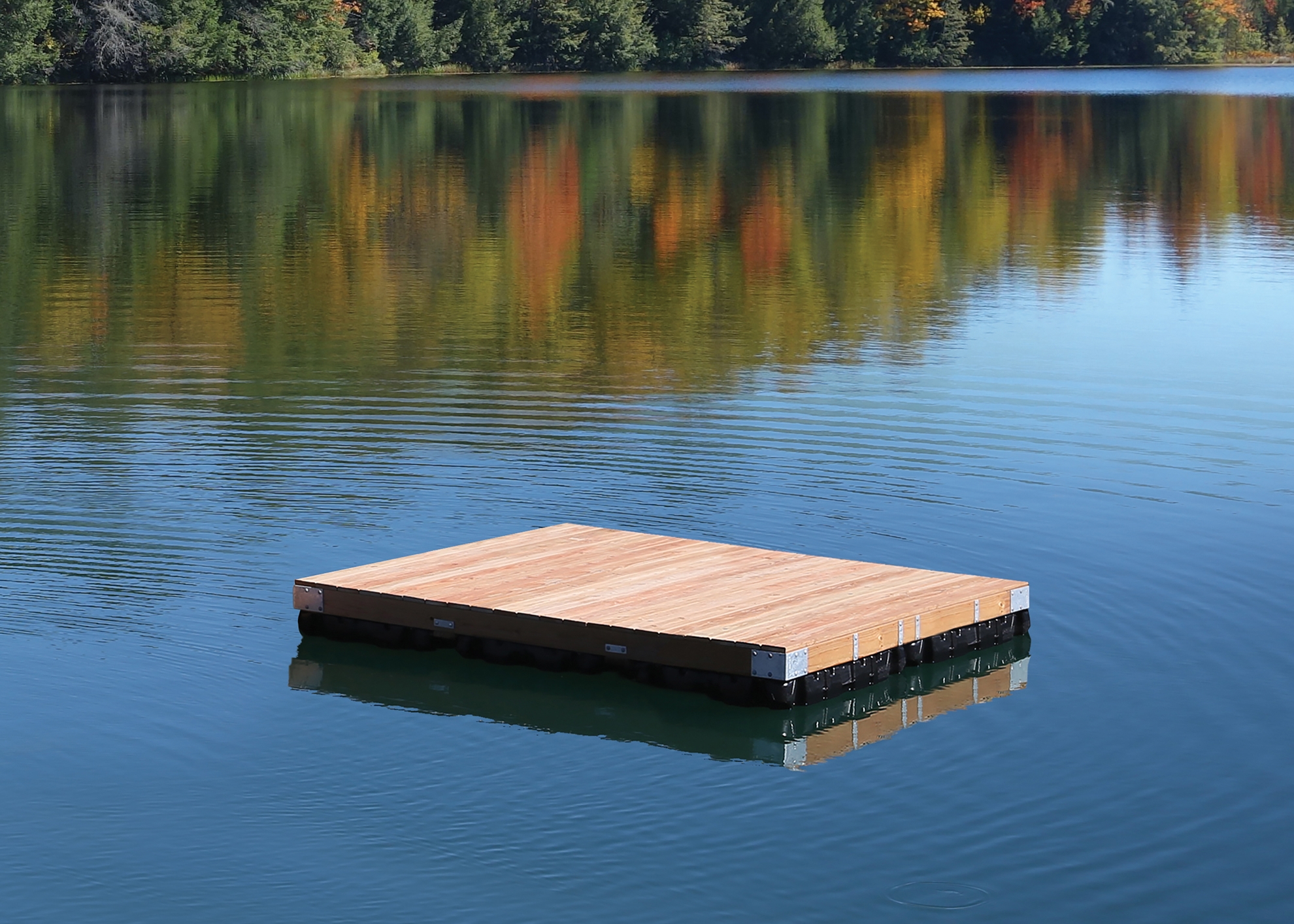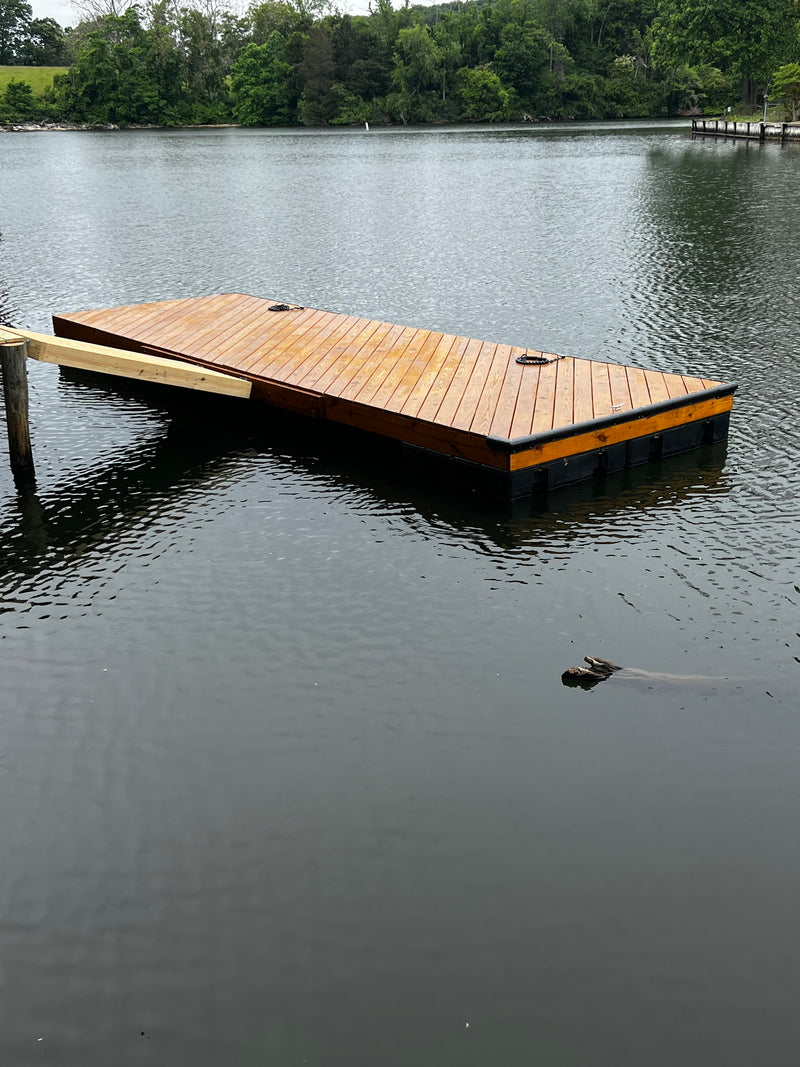Maximizing Your Outdoor Space with Specialized Floating Dock Services
Wiki Article
Floating Docks: The Suitable Choice for Versatile Water Gain Access To
Floating docks present a compelling solution for a selection of water gain access to needs, offering convenience that goes beyond conventional mooring options. The modular nature of floating docks helps with customization, providing to particular requirements.Advantages of Floating Docks
Floating docks deal many advantages that boost water gain access to for various applications. Their capacity to fluctuate with transforming water levels makes them specifically helpful in environments with varying tides or seasonal variants. This adaptability makes sure that vessels can easily tie without worry for the water's deepness, supplying a trustworthy platform for leisure, commercial, and commercial usages.Additionally, floating docks are often built from sturdy materials that withstand deterioration, making them suitable for long-lasting usage in aquatic atmospheres. Their installment is generally less intrusive than typical fixed docks, decreasing the ecological influence and facilitating quicker implementation (floating dock services). This versatility enables for easier relocation or reconfiguration according to user requirements or ecological changes
Safety is another essential benefit; floating docks can give secure accessibility for people boarding or getting off from watercrafts and minimize the danger of mishaps connected with unsteady surfaces. Furthermore, they can be designed to suit a selection of devices, such as fenders and cleats, boosting capability. In general, floating docks represent an effective remedy for enhancing water gain access to across varied markets while promoting security and ecological sustainability.

Types of Floating Docks
Numerous types of floating docks cater to different demands and environments, each created with specific functions to maximize functionality. The most usual kinds include modular docks, which contain interlacing areas that enable simple modification and expansion. These docks are suitable for recreational use, as they can be tailored to fit numerous watercraft sizes and water conditions.One more prominent alternative is the fixed floating dock, which remains anchored in location yet drifts with changing water levels. floating dock services. This kind is specifically suited for areas with minimal tidal changes, offering steady gain access to for angling or swimming. Furthermore, there are drive-on docks, which include a sloped layout that permits watercrafts to conveniently drive on and off, making them ideal for individual boat and smaller sized vessels
For industrial applications, durable floating docks are readily available, constructed from reinforced materials to endure considerable tons and extreme marine atmospheres. Environmentally friendly floating docks use sustainable materials and layouts to decrease ecological effect, frequently incorporating attributes like plant life to sustain local wild animals. Recognizing the different sorts of floating docks guarantees that users can pick one of the most suitable solution for their details demands.
Installation Refine Introduction
A successful installment of floating docks needs careful preparation and attention to information to guarantee optimum efficiency and safety. The first action involves analyzing the site problems, including water deepness, current, and possible challenges. This analysis notifies the selection of the suitable dock products and design customized to the specific atmosphere.Next, acquiring essential licenses is critical, as lots of territories have policies pertaining to construction on water bodies. The setup can continue once authorizations are safeguarded. Begin by preparing the foundation, which may entail anchoring systems or pilings customized to the dock type and regional problems.
Following the structure configuration, construct the dock sections according to producer requirements. Make certain that all components are safely secured and straightened to withstand environmental anxieties. Placement the dock in the marked location, guaranteeing it is level and stable.

Maintenance Tips and Finest Practices
After the setup process is complete, ongoing upkeep plays an essential function in making sure the durability and functionality of floating docks. Routine inspections should be performed to determine any type of signs of degeneration, wear, or damage - floating dock company. Check for any kind of loose installations, fractures, or separation in the dock areas, as these can compromise architectural integrityCleansing the dock is important to remove particles, algae, and other accumulation that can affect its look and safety. Make use of a gentle stress wash regularly to maintain tidiness without creating damage to the surface area. Additionally, using a safety sealant every couple of years can help improve durability and withstand ecological wear.
Pay interest to the mooring lines and supports, ensuring they are safe and free from rust. Change any abject parts quickly to prevent threats. Seasonal adjustments might additionally be necessary; during severe climate condition, repositioning or enhancing the dock can avoid damages.
Applications for Floating Docks
Floating docks serve a wide range of applications, accommodating both commercial and leisure requirements. In entertainment setups, they provide smooth accessibility to rivers for tasks such as boating, angling, and swimming. Their adjustable nature allows for setup in varying water degrees, making sure secure and safe access no matter of tidal changes.Commercially, floating docks are important for marinas and waterfront services. They facilitate the docking of vessels, allowing effective filling and dumping of products. Their modular style permits simple growth or reconfiguration to fit altering company demands, making them optimal for boat rentals, tour operations, or angling charters.
In addition, floating docks are utilized in environmental applications such as marine study official site and environment remediation. They can work as platforms for clinical researches, keeping an eye on water high quality, or carrying out wildlife studies without disturbing sensitive ecosystems.
In commercial contexts, floating docks are used in building projects, providing accessibility to hard-to-reach areas for equipment and employees. Their adaptability, sturdiness, and minimal effect on the atmosphere make them an optimal selection for a wide variety of applications, boosting both performance and availability in various water-based settings.
Final Thought
In conclusion, floating docks represent an optimal option for diverse water accessibility needs, owing to their versatility, resilience, and modular layout. These structures view publisher site promote risk-free mooring for numerous applications while reducing ecological impact throughout installation. The minimized maintenance demands further improve their usefulness. Floating docks serve as an important property for entertainment, commercial, and environmental tasks, ensuring reputable accessibility to rivers and advertising sustainable practices in their website water settings.Floating docks present a compelling option for a selection of water accessibility requires, supplying convenience that goes beyond typical mooring alternatives.Floating docks offer various advantages that enhance water access for numerous applications. In general, floating docks stand for a reliable remedy for boosting water gain access to across diverse sectors while advertising safety and security and ecological sustainability.
One more prominent option is the fixed floating dock, which stays anchored in area yet drifts with changing water levels.In verdict, floating docks stand for an ideal service for diverse water accessibility needs, owing to their adaptability, durability, and modular layout.
Report this wiki page